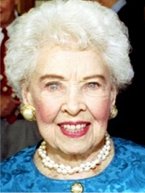 Dorothy G. Hensley, age 89, is in the final months of her battle with congestive heart disease.
Dorothy G. Hensley, age 89, is in the final months of her battle with congestive heart disease.
Dorothy did not complete high school and never believed she had the talent to be a writer but she has had a lifelong dream to be a published writer. Andshe has written all her life. Her daughter remembers her mother getting up very early in the morning so she could write at the kitchen table while the house was quiet.
When Dorothy was in her 40’s, she went to a junior college to learn to be a better writer, despite lack of support from her husband and ridicule from classmates 25 years her junior. Three years ago, at the urging of her daughter, Dorothy began taking a memoir-writing class. It was in those classes that her instructors and classmates acknowledged her as a talented writer, and she began to believe it. Dorothy has said of writing that she felt “almost overpowered with a passion as strong as hunger, as demanding as birth.”
Dorothy has written many stories about her family and experiences while growing up. Itwas her dream to see her passion of writing in print — to be recognized as a writer of promise before she dies.
She is currently in hospice care and recently realized her dream when her story below was published at beliefnet.com, the largest website of it’s kind on the entire world wide web. Congratulations Dorothy! You have truly taught us that it’s never too late!
Six Months to Live–and Laugh
On the day a woman learns she has only a short time to live, she meets someone who shows her the humorous side.
By Dorothy G. Hensley
This is the day I learned that my life is coming to an end, and that’s all right. Eighty-eight years is more than most people get.
My daughter and I sat in Dr. Barbara’s office. “I have done everything I can for you,” she said, kindness in her voice. “Would you like me to contact hospice?” Surprised, I didn’t know how to react. The doctor was looking into my eyes, waiting for a sign of understanding. “They can take care of your needs, enabling you to stay home.” She paused, and then said, “Do you know about hospice?”
I said, “Yes. I had hospice when Mia’s dad died.” I was remembering the flurry of activity, almost eight years ago, when a registered nurse and two aides arrived at our home, along with a delivery of a hospital bed, bedside potty, a wheelchair, and a walker. In no time at all the bed was standing and made up in the living room, the potty was hidden behind a screen, the wheelchair was out of the line of traffic, and the walker was folded and leaned against a wall. Yes, I was acquainted with hospice.
Mia spoke, “Are you telling me my mother has six months to live?”
The doctor transferred her attention to Mia. “No. We don’t say that now.” She looked back at me, “You may live months or a year…” I sensed hesitation in her demeanor. I stood, ready to leave; I needed to go home and talk this over with God.
However, before I could go home, I had to keep an appointment made last week with a beautician, a stranger, since retirement had claimed the operator I was in the habit of using. Maybe the hair-do would give me a lift. Yet I felt a strong need to talk about what I thought of as my new status. Until I was better acquainted with it myself, I didn’t want to discuss the obvious change in our relationship with Mia; she needed time, too.
Back in the car an unfamiliar silence lay between us. By the time Mia stopped the car to let me out at the beauty shop, I knew what I was going to do. Suddenly I was glad I didn’t know the hairdresser.
Her name was Melody. After introductions, I was seated in an adjustable chair, leaned back against a sink, and felt water and shampoo fingered onto my scalp. Then, before I could change my mind, I said, “I’ve just been told that I’m going to die.” Her fingers stilled immediately. She said nothing for a moment, so I added, “I’ll have to call in hospice.” Then I sat quietly, waiting. When her fingers started working again, I felt the muscles in my neck become tense. What was she going to say?
“Hospice, huh? You’re telling me you’ve got six months to live?” I opened my mouth to speak but didn’t have time before she continued. “You can’t have six months. That’s mine. You can have three months or five or nine, but you can’t have six.”
For the second time that day, I was too surprised to speak. She finished rinsing my hair and pushed a knob on the chair that allowed me to sit up-and just kept talking. I began to laugh.
“I get lots of free lunches out of that six-month prognosis. My kids treat me great too. The other day my granddaughter said, ‘Don’t say that, Grandma. It might be bad luck.’ I said, ‘Well, someday it’s going to be true. Then won’t you be glad you were nice to me all those years?” I was laughing out loud now, and it felt wonderful
“I tell anybody who needs to know,” she added. “One day I parked in a hard-to-find-space, and a woman in a Mercedes stopped behind my car as I got out. She yelled at me, ‘I’ve been waiting to park there. I had to turn around first.’ The teenage boy sitting in the passenger seat looked embarrassed-as well he should. I told her, ‘You want this parking place? Okay. You can have it. I’ve got six months to live, so a parking place is the least of my worries. I’ll just get in my car and pull out. You can have it.’ The teenager said, ‘M-o-m-m-m?’ and the lady left without further chatter. It comes in handy, you know?” I continued to laugh.
Only God has the wisdom and the knowledge to choreograph that particular afternoon in my life, with all the right people in all the right places at the right time. As I got ready to go home, I faced the back of the shop where Melody was shampooing her next client and talking a mile a minute. Smiling, I said in my heart, “Thank you, God.”
On occasion, when I sense a dark mood hovering around, waiting to pounce, I think of Melody and laugh. Oh, I’m still going to die, but I won’t die in six months. I wouldn’t dare!
Helping Dorothy realize her dream to be published before she died is The Dream Foundation, the first national organization founded to bestow a final wish on adults. Dream spokesperson Eve Lechner wrote, “Our dreams focus on providing resolution, a sense of completion and fulfillment. We cannot provide a cure for our dreamers, but we can dramatically impact the quality of their fragile lives with the joy experienced from a dream come true.”
If you would like to contact Dorothy and let her know how her story touched you, please email Eve2@aol.com .
We received this submission from the Dream Foundation, whose mission is to grant terminally ill adults one final wish.
 She may have been joking, but for 83-year-old Cloris Leachman one can never tell. This octogenarian ball of energy has recently completed three feature films, written her autobiography, appeared on Dancing With The Stars, performed a one-woman show in hometown Des Moines, IA and launched a new clothing line.
She may have been joking, but for 83-year-old Cloris Leachman one can never tell. This octogenarian ball of energy has recently completed three feature films, written her autobiography, appeared on Dancing With The Stars, performed a one-woman show in hometown Des Moines, IA and launched a new clothing line.
 What have you got planned for your next birthday? Anne Jensen, a California woman, proves once again that it’s never too late for anything. Anne celebrated her 80th birthday in a very special way.
What have you got planned for your next birthday? Anne Jensen, a California woman, proves once again that it’s never too late for anything. Anne celebrated her 80th birthday in a very special way.  Dorothy G. Hensley, age 89, is in the final months of her battle with congestive heart disease.
Dorothy G. Hensley, age 89, is in the final months of her battle with congestive heart disease. Doris Eaton Travis appeared on Broadway for the first time as a Ziegfeld girl when she was just 14 years old. The youngest Ziegfeld girl ever.
Doris Eaton Travis appeared on Broadway for the first time as a Ziegfeld girl when she was just 14 years old. The youngest Ziegfeld girl ever.